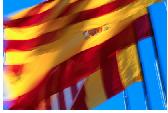Spain - Religious
Proposed Religious Freedom Law revisits Church-vs.-state showdown
 "For the archbishops in Spain, this is a new attack by Prime Minister José Luis Rodríguez Zapatero against the Catholic Church."
"For the archbishops in Spain, this is a new attack by Prime Minister José Luis Rodríguez Zapatero against the Catholic Church."
This was the commentary that rang out from Vatican Radio airwaves on Sunday after the publication by EL PAÍS of the Socialist government’s new Religious Freedom draft law.
The law, which the government would like to replace the current 1980 version, contains 37 articles as opposed to the eight currently on the books, and has the aim of broadening the secular nature of the Spanish state.
In the draft, there are four articles that deal directly with putting a greater distance between religion, meaning essentially the Catholic religion, and public institutions.
The first two articles would prohibit staging religious ceremonies in official acts, and would ban religious symbols—including the crucifix — from public and government institutions.
In the first case, the clearest example of how the new law would affect the status quo is regarding state funerals. For example, the services held for the 191 people killed in the March 11, 2004 terrorist train bombings — whose victims included a number of Muslims and Orthodox Christians — would not have included a Catholic mass at Madrid's Almudena Church, but rather a civil service.
In the second case, the crucifixes and other symbols still hanging in hospitals and public schools, as well as town halls and ministries, are under fire. "In public establishments, religious symbols will not be shown, except for those that have an historical-artistic, archeological or cultural value, as protected by law," the draft reads.
The document does, however, make exceptions for private or semi-private concertado schools and hospitals, even the ones that have fiscal agreements with the state.
Public authorities will face their own limitations. If they attend "strictly religious acts," the draft says, they should "do so in a manner that does not suppose a breakdown of the principles of neutrality and non-discrimination."
That is to say, attending only a Catholic Easter procession will no longer be allowed. Authorities should also make time for Ramadan festivities.
A fourth article in the draft would seek to extend the accords that three established non-Catholic religions (Islam, Protestant and Judaism) have with the stateto four others: Mormon, Jehovah's Witnesses, Buddhism and Orthodox Christianity. The current agreements facilitate a certain level of dialogue with the state, as well as offering certain fiscal advantages.
Since signing its 1979 accord with the state, the Catholic Church has benefited from a special status as the only religion to which taxpayers can automatically donate a percentage of their personal income tax. This relationship will remain unchanged.
Aside from Catholic opposition, and that of the Popular Party, which argues that this reform is not a current social necessity, certain left-wing parties are also displeased with the draft arguing the changes do not go far enough to roll back the Catholic Church's exclusive powers.
(Published by El País – June 15, 2010)